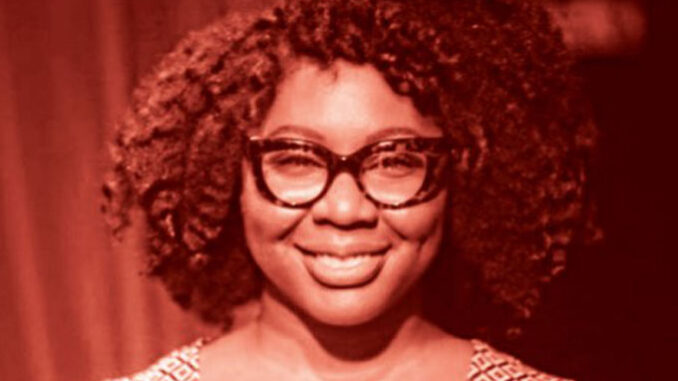
Alexa Green Data News Weekly Contributor
The term “clap back” was popularized in 2003 when rap artist Ja Rule made a song with the same title. The purpose of the song was to call out those who criticized him in a snark way. The roots of the clapback, though, comes from the clapping of hands, a non-verbal body-language expression originated by Black women in emphasizing their point.
In reclaiming the clapback after its wider use on social media platforms, performance Artist Laura Oliver spoke about how traditional Black feminist pedagogy is beneficial, liberating, and needed, in a talk titled: “I am not afraid to clap back: How radical Black feminist pedagogy benefits students of color” on October 20th.
“I was challenged to use my voice and presence in ways that seemed unorthodox to others,” said Oliver, who is a Ph.D. candidate in performance studies at Louisiana State University, with an emphasis in Women’s and African American studies.
She was first introduced to Black feminism while studying for her Master’s degree at The University of North Texas, and after reading “Teaching to Transgress” by bell hooks. The Black feminist tradition taught students like her how use their voice to challenge forms of oppression in the classroom so that it is freeing for both the students and the educator.
“I’ve had many excellent teachers in life but the ones that stuck out to me were the Black women teachers who followed suit of bell hooks,” she said.
When she was in the 8th grade, her English teacher, who she referred to as “Ms. Burns” challenged her to embrace Black feminism in all its forms through poetry. The Black women educators in her life helped her to define in her own performances how Black feminism works as a pedagogical practice to de-center whiteness, to exercise, and even through clapping.
Oliver shared that even clapping can be a form of liberation. Black people tend to restrain themselves in white spaces to not be labeled as “aggressive,” or to live up to other stereotypes. She noted that clapping or a clapback does not always have to be aggressive but reserved for moments depending on who it is for what someone is saying, and why they are saying it.
“When I think of Black feminist pedagogy, I think of healing. I think about the type of healing that touches my soul, but it’s not too much where I get lost in translation,” Oliver said. “This is for critical transformation and speaks to small folks,” she said.
Recommended For You.



Be the first to comment